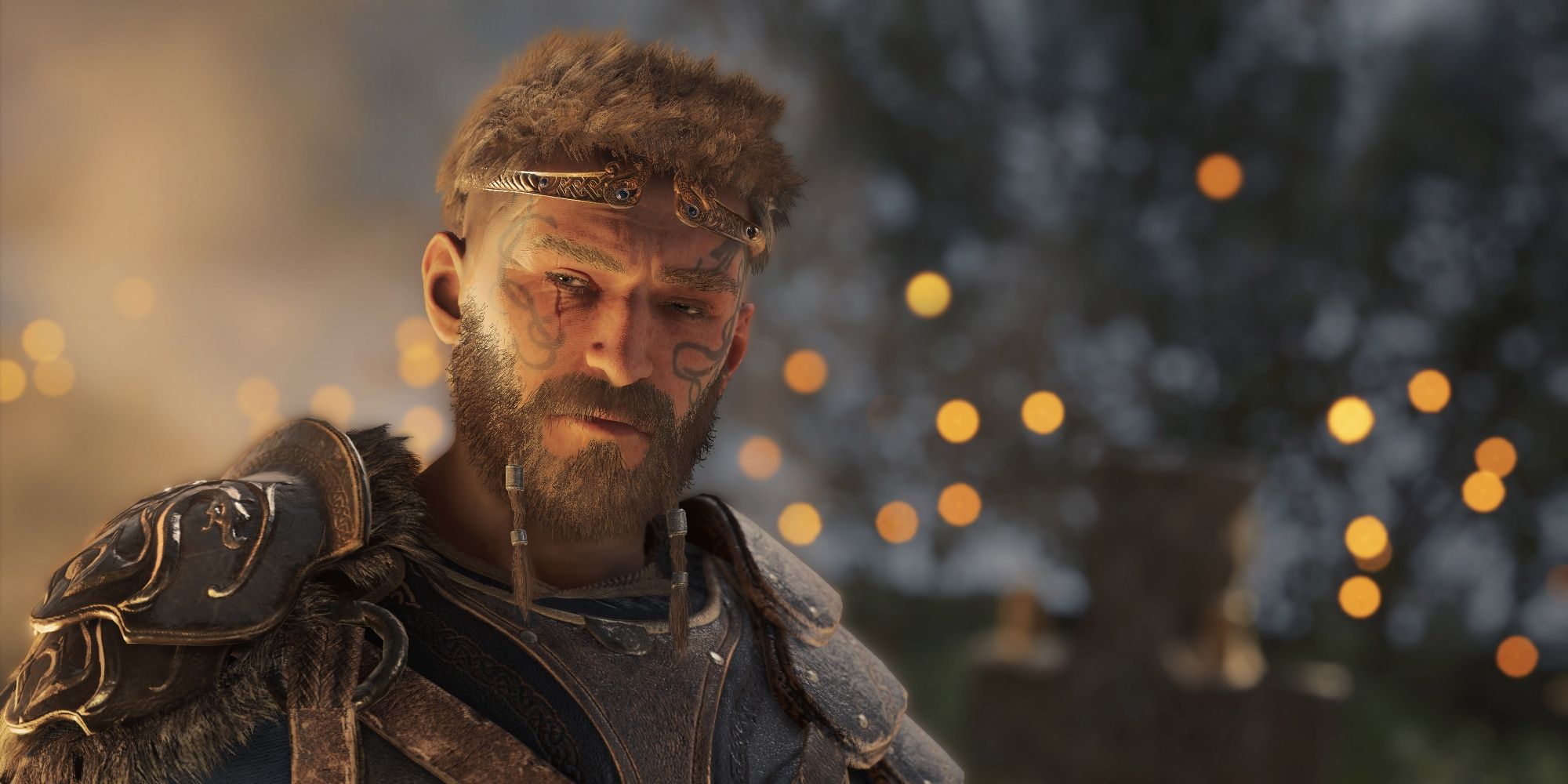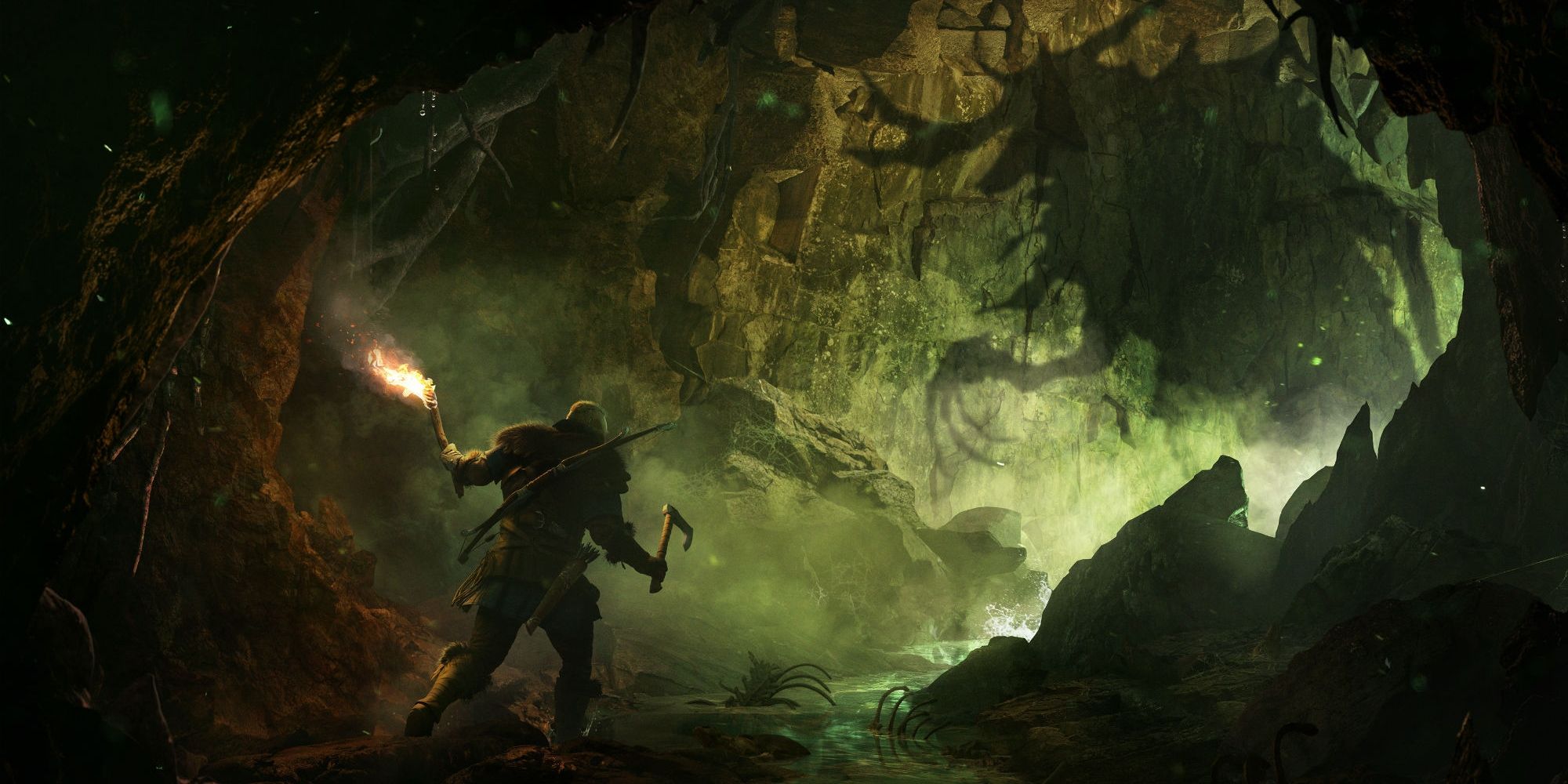One of the most exciting promises about Assassin's Creed Valhalla was that it would have a greater focus on the Isu. The base game certainly did, featuring a side-story about the Norse Isu preparing for the Great Catastrophe which Eivor interprets as Ragnarök, the discovery and use of the Yggdrasil machine, and more. The Wrath of the Druids DLC had a major opportunity to continue expanding the Isu and tell a story that felt personal and impactful, but it sadly chose to not to take it.
[WARNING: Spoilers below for Assassin's Creed Valhalla: Wrath of the Druids]
Wrath of the Druids follows Eivor as they're summoned to Ireland by their cousin Baríd, who just so happens to be the king of Dublin. The primary story consists of Eivor helping Flann, the high king of Ireland, secure his throne by hunting down the members of a hyper-zealous druidic cult known as the Children of Danu. While most Druids and Norse pagans were willing to work with Christians while staying true to their own beliefs, Assassin's Creed Valhalla's Children of Danu saw the difference of faith and occupation of their land as something that cannot continue.
This easily set up a story where Eivor and the Children of Danu find themselves in conflict due to the similarities of their belief systems. Norse and Celtic mythology have a lot in common and in the world of Assassin's Creed, the two probably worshipped the same branch of the Isu. The story of Assassin's Creed Valhalla: Wrath of the Druids ultimately decided to focus on King Flann's story and reduce the Children of Danu to a passive antagonistic force, missing a huge opportunity to create a meaningful conflict that could have greatly expanded the history of Assassin's Creed and made the Children of Danu one of the Assassin's Creed series' most evil villains.
How Wrath Of The Druids Could Have Made Its Story More Impactful
When explaining who the Children of Danu are in Assassin's Creed Valhalla, Ciara describes their belief in the Tuatha Dé Danann, an ancient god-like race that worshipped the goddess Danu. These are most-likely the Isu founders of Ireland who resided in four lost cities, each one having their own magical treasure and their own sage, which further cements them as Isu. Those cities likely became the four regions of Ireland's map and the treasures were each leader's Piece of Eden - and while only two of these Pieces of Eden were shown, one has a striking similarity to a Norse Isu weapon. After unlocking either of Wrath of the Druids' endings, a side-quest appears that allows Eivor to enter a vision and fight a primordial creature named Balor, who seems to know Eivor somehow, and upon winning receives the Gae Bolg spear. Irish mythology states that this spear never misses its mark and always returns to its owner, mirroring Odin's spear Gungnír.
What Assassin's Creed Valhalla's Wrath of the Druids DLC could have done is focus in on the similarities of the two mythologies and tell a story that still maintains the conflict of Christian domination while giving equal credence to their Norse counterparts. The Norse are already present and making their beliefs known, but Eivor could be the inciting force by way of getting Isu weapons and Pieces of Eden in order to help Flann. This would force the ultra-zealous cult to finally act and hunt down Eivor and Flann, and do so in personal ways such as attacking friends and companions in order to make Eivor more passionate about bringing them down. This could then lead to further Isu revelations through scenarios like post-assassination confessions or by kidnapping Eivor and forcing visions of the past through Assassin's Creed Valhalla's hallucinogenic mushrooms.
This one opportunity, if taken, would have allowed Wrath of the Druids to tell the story it wanted to tell but in a way that makes the characters and players more emotionally invested. Not only would it have been interesting to see more of the Isu and how they came to be viewed so differently from culture to culture, but it would have been way more engaging to see Eivor and the Children of Danu have a reason to fight that doesn't involve just being in each other's way. Assassin's Creed is at its best when the stakes are high and its driving force is personal, but the Wrath of the Druids DLC missed its opportunity to craft a story that could have stuck with its players long after the credits had rolled.


